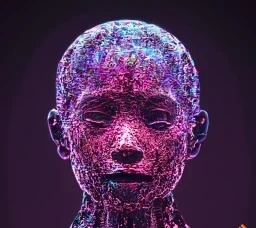Brad Smith, president and vice chairman of Microsoft, said in an exclusive interview that artificial intelligence can be weaponized and needs to be controlled by humans.
According to Smith in the interview that aired on Monday, he believes that any technological advancement has the potential to serve as both a tool and a weapon.
We must make sure that AI is still under human control. We need to make sure that we have humans in control so that we can slow down or turn things off, whether it’s the government, the military, or any other type of organization that is considering utilizing AI to automate, say, key infrastructure.
After the generative AI-powered chatbot ChatGPT became extremely popular for its capacity to make responses that are humanlike, tech leaders from all over the world issued a warning about the dangers of artificial intelligence. A sort of artificial intelligence known as “generative AI” is capable of producing a variety of content, including text, graphics, code, and more.
Sam Altman, the CEO of OpenAI, which owns ChatGPT, and officials from Google’s and Microsoft’s AI divisions cautioned in May that the risk of extinction from AI is comparable to that from nuclear war, and they emphasised the need to reduce that risk.
Elon Musk, the CEO of Tesla, Steve Wozniak, the co-founder of Apple, and other industry titans have asked AI labs to stop training systems to outperform GPT-4, the most recent large language model from OpenAI. Additionally, they have demanded a six-month hold on such advanced development.
Because of this, Smith explained, they have pushed for new laws and regulations that would guarantee there are safety breaks in addition to encouraging businesses to act morally.
The need for this has been evident elsewhere. Imagine that circuit breakers control the electricity, for example. You know that there is an emergency brake when you board a school bus with your children. In the past, we’ve done this with different technologies. Smith stated that we now must do the same for AI.
AI impact on jobs
Workers are concerned that the technology may replace them at work due to AI’s exponential growth.
According to a Goldman Sachs estimate from March, generative AI might affect up to 300 million employment worldwide. The investment bank added that employment requiring physical labor are less likely to be considerably affected and that between 25% and 50% of the effort in those affected occupations may be replaced.
The Microsoft executive emphasized that artificial intelligence is a tool that complements human work, not one that eliminates jobs.
It is a tool that can aid in sharper and quicker thinking. The biggest error people may make, according to Smith, is to believe that this is a tool that will allow them to stop thinking.
Because of this, Smith explained, Microsoft refers to its services as co-pilots.
Just because you can convert a Word document into a PowerPoint slide doesn’t negate the need to study your slides before presenting them. In fact, you ought to go back and revise them until they are flawless.
Arvind Krishna, chairman and CEO of IBM, stated last week that AI will initially have an influence on white-collar employment, but that technology may benefit workers rather than replace them.
Unquestionably, it is increasing rather than displacing. We can increase GDP by adding additional labor, particularly if it isn’t at all based on humans. Krishna replied, It should make us all feel better.








